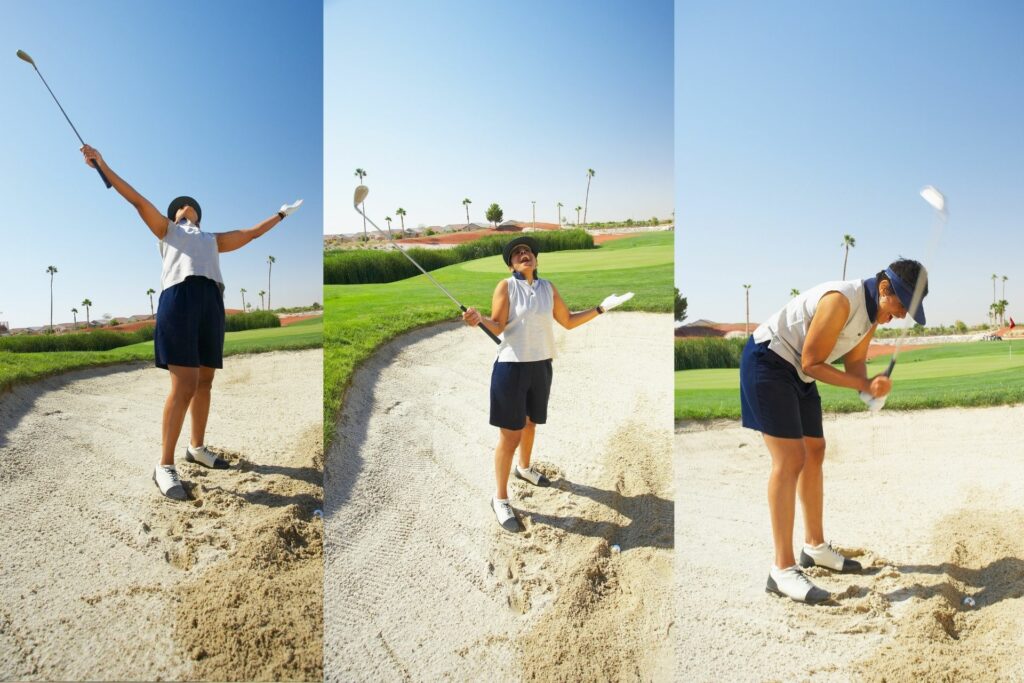Sports Performance Consultant JJ Weber explains how we can overcome negative thinking whilst on the golf course
"Here we go again. Why won't the ball go in the hole? This is the worse round I've ever played."
Does this sound familiar?
Let's refer to this line of thinking as the "Holy Heck, Snowball Effect."
The Snowball Effect is when negative thoughts build on one another. Those thoughts gain momentum, like a snowball rolling downhill until it reaches avalanche proportions.
This may come as a surprise, but you are not the only golfer who gets bombarded with negative thoughts. The fact is negative thoughts CANNOT be prevented, and that is okay. Another fact is that unfortunate bounces, misses, and mistakes WILL happen, which is also okay.
So, what are the most effective responses to bad shots, holes, or rounds? How can you stop the onslaught of unproductive thoughts and emotions?
What are your destructive responses?
First, let's look at some destructive responses:
- Berating yourself – Telling yourself, "I'm an idiot. I can't do anything right. I should quit" is unproductive. Have you ever played better golf after beating yourself up? Definitely not! So, let's cross that response off our "effective response list."
- Blurting out curse words - Eh, no! Cursing won't change how you strike the ball, nor will it alter the ball's path. So, Option #2 won't work either. Swearing will only stir the hot cauldron of negative emotions.
- Smashing your golf club – While burying your club into the ground may feel SOOOO RIGHT at the time, it will make matters worse. With one less club in your bag and the intense guilt you will experience, you are doomed to play worse. Not to mention, you will have to take the walk of shame to the golf shop to purchase a new club.
Now that we know what does not work, let's look at more productive, effective responses.
Five practical strategies to interrupt disruptive thoughts
- Unload – You can't stop negative thoughts. Trying to suppress negative thoughts only intensifies the problem. Give yourself 1-2 minutes to get it all out and over with. Of course, do this internally. If not, you will look like a raging lunatic. After your two-minute internal rant, tell yourself, "That's over. Now, focus on…."
- Reset and Refocus – You can't move forward carrying the heavy weight of negative thoughts and emotions. Since you cannot focus on two different thoughts simultaneously, a pre-shot routine will help take your focus away from the last shot and keep you grounded in the current moment.
- Give yourself a break, for goodness' sake – Guess what? All golfers hit bad shots. You're not alone. Get over it. Instead of beating yourself up, tell yourself, "It happens to the best." If I'm not mistaken, I think even Annika Sorenstam, who has 72 career victories, hit some bad shots. So, you are in good company.
- Strenuously object – We have all seen a courtroom drama where a smirky defense lawyer stands up and declares, "I object your honor," in defense of his client. You can use the same strategy when judging yourself after a bad shot. For instance, slicing a drive can lead some golfers to harsh self-judgments, "I can't drive a ball straight to save my life. I'm the worst golfer in the world. I shouldn't be able to own golf clubs." At this point, you need to be your defense lawyer. Tell yourself, "I object! Does one hole mean I'm horrible? Does slicing a drive mean I will hit the next drive offline? Is there any evidence to support that I can hit great shots and score low?" The mere act of questioning your thoughts is enough to create doubt in your doubts.
- Kill the elephant – I am not suggesting injuring an already endangered species. I am referring to the saying "an elephant never forgets." Being an elephant on the golf course does not help you play better. Remind yourself of the elephant analogy after a bad shot.
Changing your perspective changes your response. Let's be real… We are human. We judge ourselves. We have emotions that can be intense at times. But we don't need to allow mistakes to detract from our game or take the fun away from playing. You deserve more!
About JJ Weber
JJ Weber, M.Ed is a Sport Performance Consultant, freelance writer and stay-at-home dad. JJ has a Sport Psychology degree from Temple University. He has served as a mental training technician for professional teams and elite athletes in a wide range of sports.
With over 15 years as a freelance writer, he specializes in parenting, psychology, exercise, fitness, human performance, and mental training. He is a member of the American Association of Sport Psychology and the International Society of Sport Psychology.
If you have any further questions, you can contact him at [email protected] or through TeamWeberConsulting.com.










